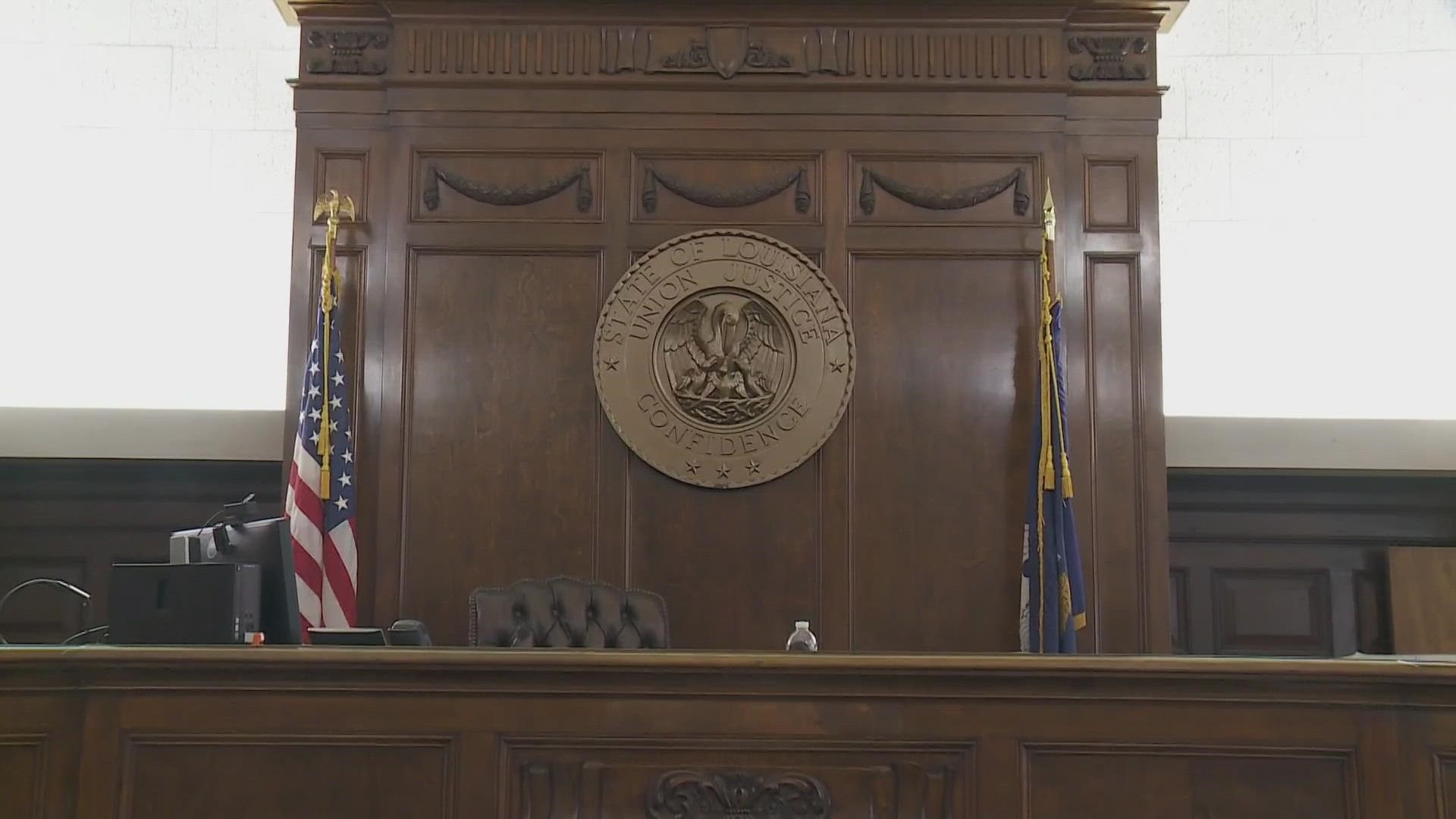NEW ORLEANS — We often report on crime, but we don't always talk about what happens after someone is convicted. When an individual gets out of jail, it can be a hard transition back to everyday life.
The Orleans Re-Entry Court Program works with non-violent convicted felons both in and out of jail. It hosts "Docket Day" once a month for participants to share their highs and lows.
At February's Docket Day, Troy Barnes shared that he got a driver's license, was married and bought a house, and the courtroom swelled with applause.
Barnes is one of 19 people in the program right now.
“My conviction was convicted felon with felony possession of a firearm," Barnes said. While at Angola, Barnes heard about the program.
“Laura White was my sentencing judge at the time. I asked my lawyer to ask her can I take the re-entry program? And people were looking at me saying, that’s strange for you to want a program. But like I told them, I was out here, and I was getting into trouble. So, if I have an outlet, where I can get a certification and a career started, then let me go for it," Barnes said.
Barnes has done just that. He's now a mechanic.
The program requires those in jail to get their GED or HiSET, have a minimum of two vocational trades, go through a mentorship program and substance abuse treatment, if necessary.
Once on probation, participants must have stable housing and employment, get a driver's license, continue substance abuse or mental health treatment and commit to continuing education or professional development.
Not to mention, they must show up to Docket Day every month.
“This re-entry court program helped me plant my feet as a human being," Barnes said, "I didn’t have structure. I was a loose cannon. I didn’t care.”
“I was able to control my anger. Also, face it. And face my depression. I didn’t know I had depression," Barnes said. “We have mental health classes and things like that and I really didn’t know what PTSD was until I talked about my life.”
Barnes is poised to graduate from the program next month. At February's Docket Day, two men graduated from the program. For Russell Helton, the transition hasn't been as easy.
“Where do you think you would be without this program?” Eyewitness News Reporter, Lily Cummings, asked Helton.
“Honestly, dead," Helton replied.
Helton was arrested on drug charges, and a judge referred him to the program.
“Definitely didn’t want it at first, but finally decided to take it. Definitely helped me," Helton said, “I came back from Angola, was still clean for a couple months, relapsed, used for a little bit and then they sent me to another DOC treatment program.”
With the Re-Entry Court's support, Helton has been clean since September and is about to start his own carpentry business.
Orleans Parish Criminal District Court Judge Marcus DeLarge took over Re-Entry Court in 2021.
“When individuals have resources, when they have opportunities, when they have people that care about them, they can do well. As I told you earlier, not a single participant that we’ve had has been re-arrested," DeLarge said, “A person is actually sentenced into this program meaning that they plead guilty.”
DeLarge said the program was stifled by the pandemic, but now he wants to see it expand as New Orleans faces what he calls a "crime wave."
“Society should not throw these people away because they can be productive members of society, and I’m proving that they can," DeLarge said.
For more information contact the Re-Entry Court Office at 504-658-9490 or ljeffrey@criminalcourt.org.
► Get breaking news from your neighborhood delivered directly to you by downloading the new FREE WWL-TV News app now in the IOS App Store or Google Play.

